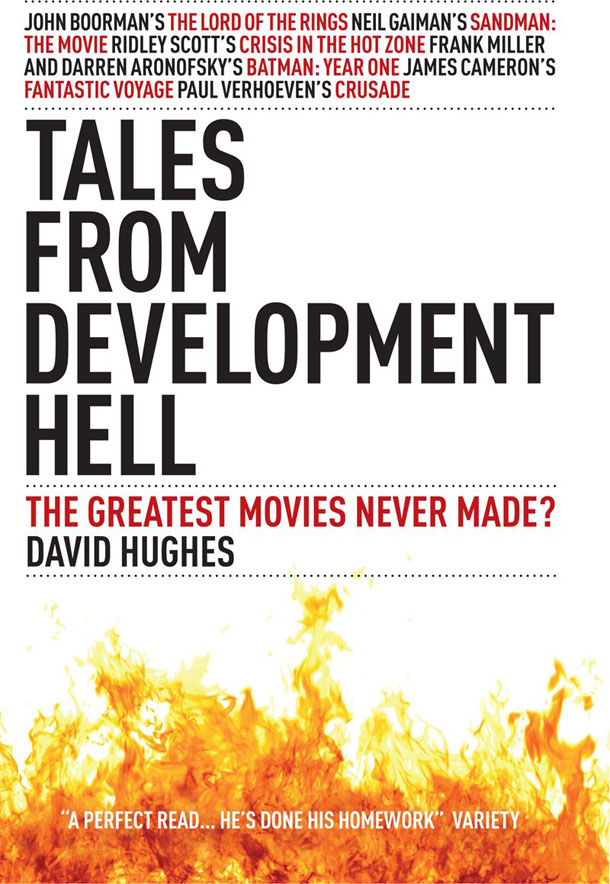Tales from Development Hell: The Greatest Movies Never Made?
“Trying to make a movie in Hollywood is like trying to grill a steak by having a succession of people coming into the room and breathing on it.” – Douglas Adams
 In a time where digital technology has empowered novice filmmakers to grab a camera and hit the streets filming and every aspiring writer seems to have the next great American screenplay sitting at home on their hard drive, the situation remains that seeing a film come to fruition within the Hollywood system is a grueling and uphill battle.
In a time where digital technology has empowered novice filmmakers to grab a camera and hit the streets filming and every aspiring writer seems to have the next great American screenplay sitting at home on their hard drive, the situation remains that seeing a film come to fruition within the Hollywood system is a grueling and uphill battle.
For every movie made there are hundreds of promising projects that were picked up only to fizzle and languish for decades in “Development Hell”—a pre-production quagmire where scripts are endlessly rewritten, sets are designed and discarded and where star actors and directors sign on only to jump ship at the last minute.
As a screenwriter of unproduced films such as T.J. Hooker and 250 GTO, author David Hughes has experienced many of these pitfalls first-hand. His book Tales from Development Hell: The Greatest Movies Never Made?, recently released as an expanded and updated second edition, provides an intriguing glimpse into the creative mess that is the Hollywood machine.
The book recounts the stories of numerous projects that seemed like slam-dunks and yet never saw the light of day: James Cameron’s take on Fantastic Voyage, Darren Aronofsky’s Batman: Year One, the adaptation of Neil Gaiman’s acclaimed comic The Sandman.
These tantalizing “what if” stories often boil down to a case of “too many cooks in the kitchen,” with a rotating ensemble of producers, studio executives, directors and actors forcing their input onto a script and in doing so carrying it further and further away from the source material.
Hughes’ research is meticulous, incorporating interviews with key players on each project. His account of each project’s conception, evolution and ultimate undoing is alternately amusing, insightful and dispiriting. Film geeks are sure to revel in pondering how Clint Eastwood may have portrayed Gotham’s Dark Knight, while aspiring screenwriters may despair at Hughes’ accounts of writers submitting themselves to months of grueling and thankless spec work.
As a film buff who devours all of the “making of” extras on film DVDs, I found Hughes’ book to be a compelling exploration of the many pitfalls involved in film-making. A word of warning however— Hughes, perhaps wearied by his own experiences with the Hollywood machine (which he relates toward the end of the book), does little to give hope or encouragement to screenwriters aspiring to make it in Hollywood, and may leave all but the most resolute feeling somewhat disheartened.
Tales from Development Hell: The Greatest Movies Never Made? is published by Titan Books.







